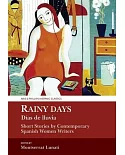Crimen y Castigo fue publicada por Fiódor Dostoyevski en 1866 a través del diario El mensajero ruso, en doce partes que luego conformarían la novela, universalmente reconocida como una de las
más influyentes de la literatura rusa. La novela tiene un corte sicológico que llevá al lector a explorar de forma constante los pensamientos del protagonista, el estudiante Raskolnikov,
quién a través de sus diálogos con los demás personajes, analiza cada uno de los actos que lo llevarán luego a cumplir una condena en Siberia; crímenes que no son buenos ni malos hasta que se
los mira desde la óptica de la sociedad y de los diferentes individuos involucrados. Motivado por el deseo de hacer el bien a su hermana Dunia sus acciones terminan siendo, sin embargo,
sangrientas, y solo una muchacha humilde que se convierte en su confidente podrá comprender del todo sus razones.
ENGLISH DESCRIPTION
Through the story of the brilliant but conflicted young Raskolnikov and the murder he commits, Fyodor Dostoevsky explores the theme of redemption through suffering. Crime and Punishment put
Dostoevsky at the forefront of Russian writers when it appeared in 1866 and is now one of the most famous and influential novels in world literature.
The poverty-stricken Raskolnikov, a talented student, devises a theory about extraordinary men being above the law, since in their brilliance they think new thoughts” and so contribute to
society. He then sets out to prove his theory by murdering a vile, cynical old pawnbroker and her sister. The act brings Raskolnikov into contact with his own buried conscience and with two
characters the deeply religious Sonia, who has endured great suffering, and Porfiry, the intelligent and discerning official who is charged with investigating the murder both of whom compel
Raskolnikov to feel the split in his nature. Dostoevsky provides readers with a suspenseful, penetrating psychological analysis that goes beyond the crime which in the course of the novel
demands drastic punishment to reveal something about the human condition: The more we intellectualize, the more imprisoned we become.





















